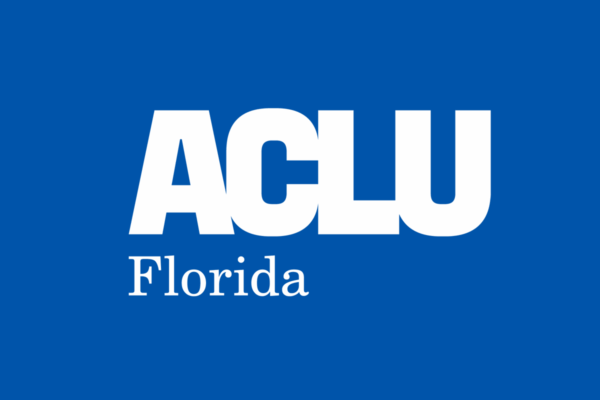SARASOTA, Fla. – Southern Legal Counsel and the ACLU of Florida today petitioned Florida’s Second District Court of Appeal on behalf of U.S. Army veteran Stacy Ostolaza, whose license was improperly suspended by Sarasota County Clerk of Court Karen E. Rushing after he failed to pay $293 for court costs, fees, and fines associated with a civil citation for violating a local ordinance.
Ostolaza’s license suspension is one of 1,883 issued by the Sarasota Clerk of Court for failure to pay costs and fines related to non-criminal municipal or county ordinance violations between July 2006 and March 2021, even though Florida law only permits driver’s license suspensions for unpaid financial obligations related to criminal offenses.
“We are asking the court to issue a writ of quo warranto and prohibit the Sarasota Clerk of Court from suspending driver’s licenses for non-payment of court costs, fines, and fees associated with ordinance violations,” said Chelsea Dunn, an attorney with Southern Legal Counsel. “In fact, the Florida Supreme Court has held that ordinance violations are not crimes as defined by state statute, and the Clerk has been informed in writing by the Florida Department of Highway Safety and Motor Vehicles that such suspensions are unauthorized by law.”
In their petition, the advocacy groups include data showing that the local ordinance violations that have resulted in driver’s license suspensions in Sarasota County “are those that tend to disproportionately affect persons experiencing poverty,” such as open container, camping, or park rule violations. They point out that nearly a third of those affected in Sarasota County are individuals experiencing homelessness and that, statewide, Black citizens have their licenses suspended at a rate 1.5 times higher than the general population.
The practice of suspending driver’s licenses in Florida was originally a response to reckless driving, speeding, and other driving-related offenses to promote highway safety, but it has increasingly been used as a coercive means to collect fees and fines. Between 2015 and 2017, more than 3.5 million suspension notices were issued in Florida for unpaid court debt.
“The impact of this practice falls mostly on those who are unable to pay, such as our client, who is a veteran but currently unemployed while serving as the primary caregiver for his father, who is battling cancer,” Jacqueline Azis, staff attorney at the ACLU of Florida, said. “Those who can’t immediately pay their fines and fees are subject to significant additional penalties, such as collection fees, interest, and payment plan set-up fees, among other fees.”
After achieving a victory in Marion County Court for Anthony Cummings, a homeless man who had been illegally assessed $824 in court costs and had his driver’s license suspended in three cases of “open lodging” under an Ocala ordinance, Southern Legal Counsel and the ACLU of Florida met with the Florida Department of Highway Safety & Motor Vehicles, which provided statewide data showing license suspensions for nonpayment in local ordinance violation cases and sent letters to clerks of court in 29 counties, including Sarasota, notifying of their intention to reinstate driver’s licenses for more than 10,000 drivers.
The Sarasota County Clerk of Court refused to lift the suspensions in all but 21 cases and continued her practice of suspending driver’s licenses for unpaid fees and costs associated with local ordinance violation cases.
The advocacy groups are asking the Court to issue a writ of quo warranto, which would require Rushing, in her capacity of Clerk of Court and Comptroller for Sarasota County, to appear before the Court and show by what legal authority she claims to properly suspend driver’s licenses for non-payment of court costs, fines, and fees associated with municipal/county ordinance violations. The writ commands the defendant to stop issuing unauthorized license suspension or to answer the allegations in the complaint by justifying the authority in question.
A copy to the complaint can be viewed here: https://www.aclufl.org/en/petition-writ-quo-warranto
Stay Informed
Sign up to be the first to hear about how to take action.
By completing this form, I agree to receive occasional emails per the terms of the ACLU’s privacy statement.
By completing this form, I agree to receive occasional emails per the terms of the ACLU’s privacy statement.

